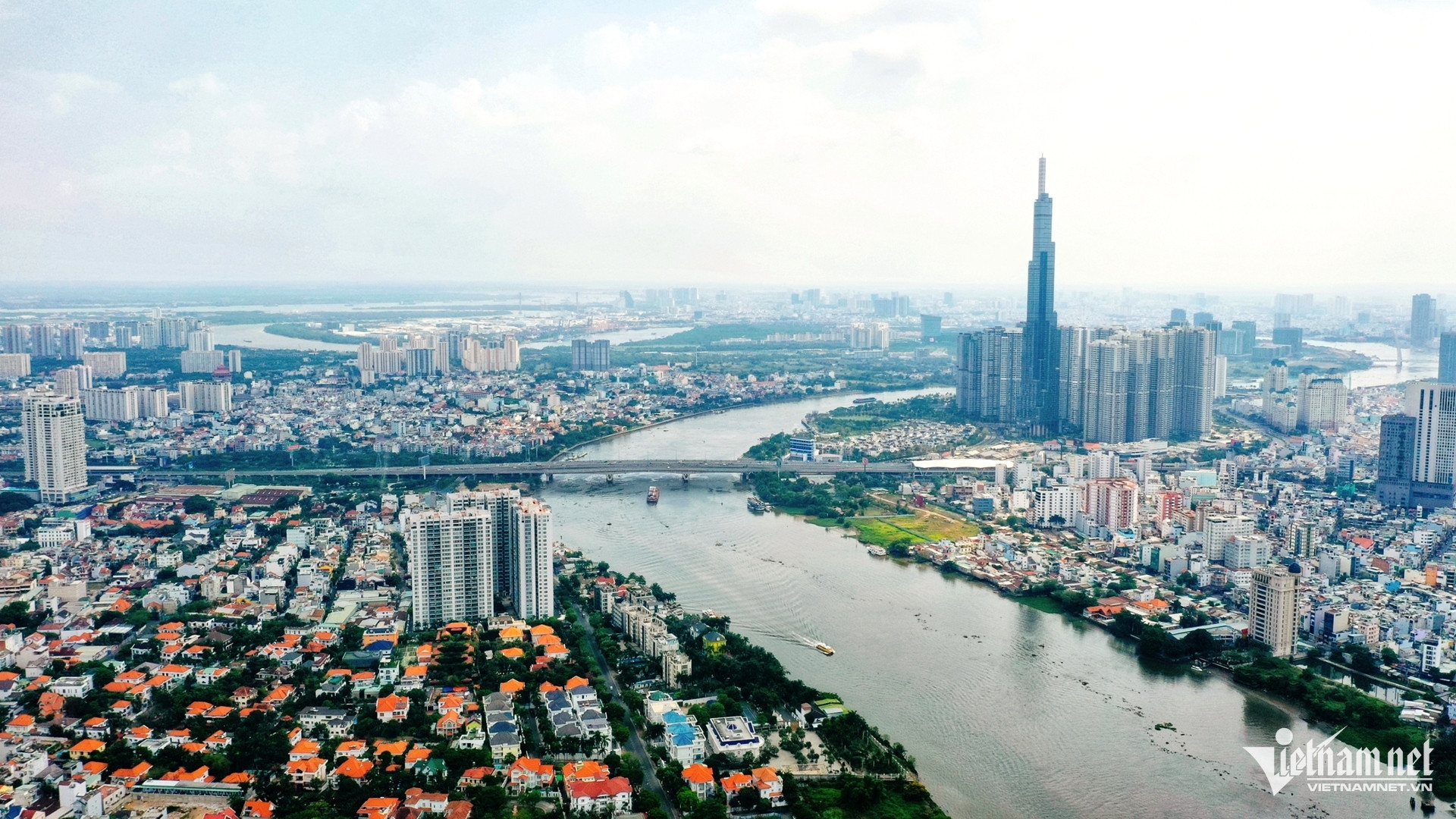
Numerous violations in urban planning and construction in Ho Chi Minh City have recently been disclosed by the Government Inspectorate. The agency recommends that if any signs of criminal activity are found, relevant case files should be handed over to investigative authorities.
A series of delayed projects
A newly released report by the Government Inspectorate on the management and implementation of urban planning in Ho Chi Minh City from 2015 to 2022 highlights extensive violations in this area.
According to the findings, the municipal People’s Committee failed to complete the city’s general planning scheme on schedule, with delays lasting several years. Additionally, the data used as input - such as land use status in several districts - was inaccurate, resulting in discrepancies in population and traffic indicators within the planning documents.
The prolonged preparation time and incomplete, outdated content of these plans have lowered their quality and complicated management and implementation. In some areas, urban planning orientations do not align with current realities, reducing their attractiveness to investors.
Specifically, the 1:2,000 scale zoning plans contain several issues, including misapproval of land-use functions across planning levels and frequent adjustments that fail to consider synchronization between technical and social infrastructure.
The report further states that between 2011 and 2023, over 528 billion VND (approximately 21.3 million USD) was allocated for planning activities in Ho Chi Minh City - an amount deemed insufficient to meet the city's development needs. State investment in infrastructure remains inadequate and scattered.
During this period, transportation, environmental protection, and flood control accounted for 60% of the city's infrastructure investment demand - over 950 trillion VND (about 38.4 billion USD). However, the municipal budget could only meet 20% of that requirement.
This lack of synchronized infrastructure investment has worsened traffic congestion, flooding, and environmental pollution. Meanwhile, access to green spaces and essential urban infrastructure for residents continues to fall short of expectations.
In addition, reports from various districts reveal many unimplemented (stagnant) or significantly delayed projects across the city.
Notable examples include the Binh Quoi – Thanh Da Urban Area (426.93 hectares), Northwest Urban Area in Cu Chi District (approximately 6,000 hectares), Saigon Safari Park (approximately 456 hectares), Binh Trieu Station (approximately 41 hectares), and the Xuyen Tam Canal project (6.7 kilometers).
There are seven delayed projects in District 6, two in Tan Phu District, two in Binh Chanh District, twelve in District 7, eleven in Binh Thanh District, two in Hoc Mon District, and twelve in Thu Duc City.
These stagnated developments have led to wasted capital and prolonged issues such as traffic jams and urban flooding.
Upon reviewing zoning plans in various districts, the Government Inspectorate found numerous inadequacies and violations.
For example, a commercial-residential project at 50 Phan Van Khoe Street in District 6 failed to include designated preschool facilities. The Department of Construction also issued a construction permit before technical designs had been assessed and approved - violating legal procedures.
At the mixed-use residential-commercial project by Gotec Vietnam Co., Ltd. in District 6, the Department granted permits excluding rooftop structures in the floor count - again against regulations. The project also improperly included commercial-use kitchens within residential units, and the developer failed to meet its financial obligations for 20% of the required social housing units.
The Richstar Residence project by Nova Richstar Co., Ltd. was allowed to proceed with planning adjustments without recalculating the supplemental land use fees. Instead, the People’s Committee permitted parent company NovaLand Group to make a provisional payment of more than 1.083 trillion VND (around 43.8 million USD) for eight projects, including 242.5 billion VND (approximately 9.8 million USD) for Richstar Residence - based on recommendations from the Department of Natural Resources and Environment - without proper legal basis.
Transfer to investigation if criminal signs are found
Based on the inspection results, the Government Inspectorate recommends that the Prime Minister direct the Ministry of Construction and the Ho Chi Minh City People’s Committee to conduct reviews and clarify responsibilities of relevant collectives and individuals in leadership roles.
For financial accountability, the Inspectorate urges the city to instruct departments, districts, and related agencies to clarify the development, appraisal, and approval of general planning schemes in 19 districts with inconsistencies compared to the city-wide planning framework.
Authorities must review more than 24 billion VND (around 972,000 USD) in planning expenses and recover any misused funds for the state budget.
They are also required to audit, calculate, and collect outstanding land-use payments from projects citywide. The municipal People’s Committee reported these outstanding fees total more than 802 billion VND (approximately 32.5 million USD).
These projects include the commercial and residential center at Lot F in Tan Tuc Town, Binh Chanh District, developed by Western City Co., Ltd. (where detailed planning was altered to increase total construction floor area); the An Ha Residential Area in Pham Van Hai Commune, Binh Chanh District, by Nhut Thanh Investment – Construction – Trading – Production JSC; Richstar Residence by Nova Richstar; and the Vạn Gia Phuc Social and Commercial Housing Complex in Ward 10, District 6, by NovaLand Group.
The Government Inspectorate emphasized that if, during further inspection and enforcement, signs of criminal violations are identified, the Ministry of Construction and related provincial and municipal authorities must transfer the case files to investigative agencies for appropriate legal action.
Nguyen Le